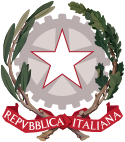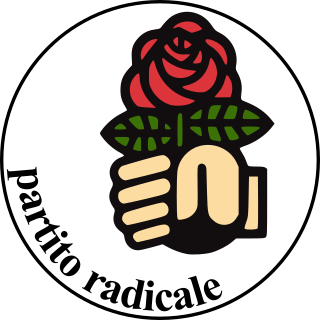
A referendum, in the Italian legal system is a request directed to the whole electorate to express their view on a determined question. It is the main instrument of direct democracy in Italy.

A referendum on the divorce law was held in Italy on 12 May 1974. Voters were asked whether they wanted to repeal a government law passed three years earlier allowing divorce for the first time in modern Italian history. Those voting "yes" wanted to outlaw divorce as had been the case before the law came into effect, and those voting "no" wanted to retain the law and their newly gained right to divorce. The referendum was defeated by margin of 59.26% to 40.74% on a voter turnout of 87.72% out of 37 million eligible voters, thus allowing the divorce laws to remain in force.
A referendum on the Order law was held in Luxembourg on 6 June 1937. Voters were asked whether they approved of the new law, which would ban any political party that sought to change the constitution or national legislation by violence or threats. The law would result in the dissolution of the Communist Party, and became known as the Maulkuerfgesetz.

A double referendum was held in Italy on 11 June 1978. Voters were asked whether they approved of the repealing of laws on political party financing and public order. Both proposals were rejected.

An eight-part referendum was held in Italy on 18 April 1993. Voters were asked whether they approved of the repealing of laws on limiting intervention of local health units in dealing with environmental pollution, limiting the use of medicinal drugs, political party finances, the use of proportional representation in the Senate of Italy and the regulation of public banks, as well as the abolishment the Ministry of Agricultural, Food and Forestry Policies, the Ministry of State Holdings, the Ministry of Tourism. All eight proposals were approved with support ranging from 55.3% to 90.3%.

A twelve-part referendum was held in Italy on 11 June 1995. Voters were asked whether they approved of the repealing of laws on union representation, union dues, collective contracts for public sector workers, internal exile for mafia members, public ownership of RAI, concessions for television channels, advertising breaks during films, television publicity, commercial licensing, local council elections and shopping hours. Only five of the twelve proposals were passed.

A referendum on the electoral law was held in Italy on 18 April 1999. Voters were asked whether they approved of replacing the mixed-member proportional representation electoral system with one based solely on single-member constituencies, with the 25% of seats instead allocated to the second-placed in the constituencies with the most votes. The proposal was supported by larger parties, but opposed by smaller ones. Although the proposal was approved by 91.5% of voters, turnout was only 49.6%, resulting in the referendum being invalidated as the threshold of 50% was not passed.

A constitutional referendum was held in Italy on 25 June 2006. Voters were asked whether they approved of amending 57 articles of the constitution. The reforms were proposed by the Silvio Berlusconi government, which had lost power in the April 2006 elections. They would have given more power to the Prime Minister by allowing him or her to dissolve parliament, appoint and sack ministers and control government policy. The Chamber of Deputies would have been given responsibility for foreign policy, defence and immigration, and the Senate responsibility for federal law. The proposals would also have increased the power of the regions, giving them control of education, healthcare, law and order, as well as giving them representation in the Supreme Court. The proposals were opposed by the incumbent Prime Minister Romano Prodi, and were rejected by 61.3% of voters.

A seven-part referendum was held in Italy on 15 June 1997. Voters were asked whether they approved of the repealing of laws on topics including privatisation, conscientious objectors, hunting, the judiciary and journalists, as well as whether the Ministry of Agrarian Politics should be abolished. Although all seven proposals were approved by voters, the voter turnout of 30% was well below the 50% threshold and the results were invalidated.

A seven-part referendum was held in Italy on 21 May 2000. Voters were asked whether they approved of the repealing of laws on topics including election funding, the electoral system, the judiciary, employment and union dues. Although all but one of the seven proposals were approved by voters, the voter turnout of 32% was well below the 50% threshold and the results were invalidated.

A four-part referendum on fertility laws was held in Italy on 12 June 2005. Voters were asked whether research and access to the research on embryos should be limited, whether embryos should be legally recognised as people and whether IVF treatment should be limited to three embryos. The referendum was called after the Italian Radicals collected the 500,000 signatures required. Although all four proposals were approved by wide margins, the voter turnout of 26% was well below the 50% threshold and the results were invalidated. Pope Benedict XVI had called for a boycott.

A constitutional referendum on the subject of abortion was held in Liechtenstein on 27 November 2005. Voters were presented with a "For Life" proposal and a counterproposal by the Landtag. For the first time since 1925, a Landtag counterproposal was approved, whilst the "For Life" initiative was rejected.

A referendum on creating administrative regions was held in Portugal on 8 November 1998. Two proposals were put to voters, the first on implementing the regions, and the second specifically asking whether voters approved of the new region for their area. The proposals were rejected by wide margins by voters.
A three-part referendum was held in Switzerland on 21 October 1877. A federal law on working in factories was approved by voters, whilst a federal law on compensation for not serving in the military and a federal law on the political rights of settled and travelling people and the loss of rights for Swiss citizens were both rejected.
A four-part referendum was held in Switzerland on 11 May 1884. All four were rejected by voters.
A referendum on employment protection was held in Switzerland on 17 February 1924. Voters were asked whether they approved of an amendment to the federal employment protection law. The proposal was rejected by 57.6% of voters.
A referendum on public order was held in Switzerland on 11 March 1934. Voters were asked whether they approved of a federal law on maintaining public order. The proposal was rejected by 53.8% of voters.
A referendum on freemasonry was held in Switzerland on 28 November 1937. Voters were asked whether they approved of a popular initiative that would ban the practice. The proposal was rejected by a majority of voters and cantons.
Fourteen referendums were held in Switzerland in 1977. The first three were held on 13 March on popular initiatives on foreign infiltration, limiting naturalisation and changing the rules on referendums on treaties. All three were rejected, whilst the counter-proposal was approved. The next two were held on 12 June on changes to sales tax and direct federal taxation (rejected) and on tax harmonisation (approved).
Eight referendums were held in Switzerland during 2002. The first two were held on 3 March on popular initiatives for Switzerland to join the United Nations and to reduce working hours. UN membership was approved, whilst the shorter working hours proposal was rejected. The next two were held on 2 June on amending the penal code regarding abortion, which was approved, and a popular initiative "for mother and child", which was rejected.







